Our Blog
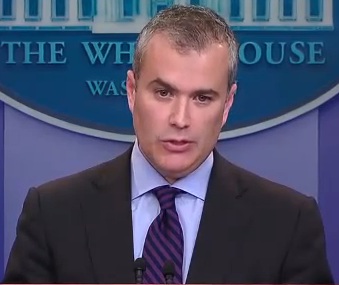
January 13, 2022 | The American Prospect
Fire Jeff Zients
Biden’s COVID czar has gone from ‘Mr. Fix-It’ to grim reaper, steering the administration’s pandemic response to catastrophic lows.
January 12, 2022 | Revolving Door Project Newsletter
Pelosi Turns a Political Slam Dunk to a Troubling Liability
With Omicron surging, Build Back Better sputtering, and the latest voting rights push facing long odds, it’s no secret that Democrats are in desperate need of a win to prove their worth. So what did Democratic leadership do when one such opportunity – enthusiastically championing a move to ban members of Congress from trading stocks – fortuitously fell into its lap? You guessed it…Speaker Nancy Pelosi mocked and immediately rejected it.

January 11, 2022
The Case For Vaccine Equity
To truly bring an end to the Covid-19 pandemic which has ravaged the globe, the Biden administration must embrace a strategy of vaccine equity.
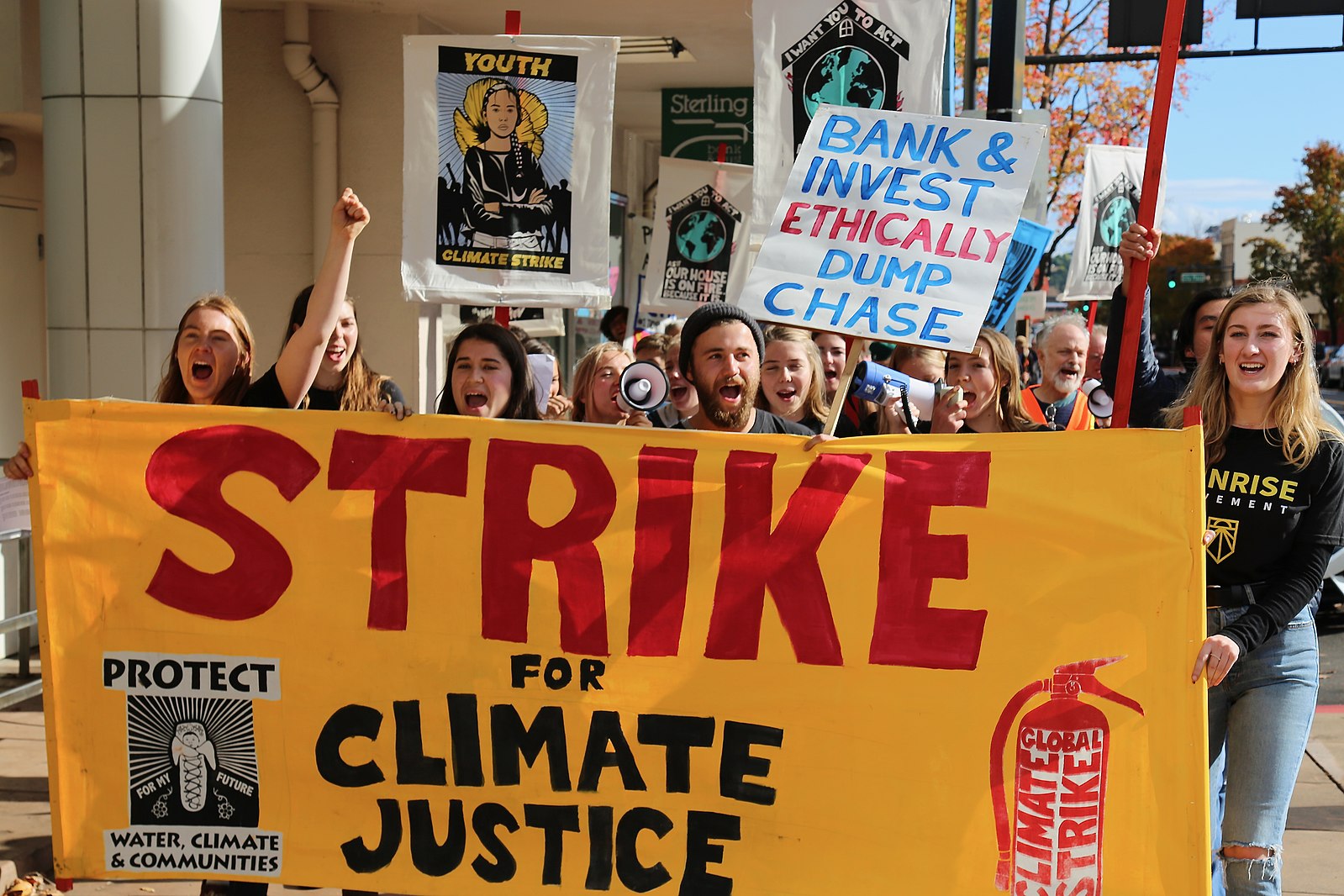
January 11, 2022
Climate Finance Capacity Project: Securities and Exchange Commission
Climate change poses a serious threat to everything the Securities and Exchange Commission (SEC) is meant to protect and oversee. The Commodity Futures Trading Commission (CTFC)’s “Managing Climate Risk in the U.S. The Financial System ”report makes this abundantly clear. The report concludes that climate change may “exacerbate existing, non-climate related vulnerabilities in the financial system, with potentially serious consequences for market stability”. Furthermore, the physical and transitional risks of climate change will likely lead to systemic and sub-systemic financial shocks. These shocks would cause “unprecedented disruption in the proper functioning of financial markets and institutions” and further marginalize communities underserved by the financial system. To fulfill its mandate, of maintaining fair, orderly, and efficient markets, protecting investors, and facilitating capital formation, the SEC must proactively ensure there is enough personnel to monitor and enforce regulations that will keep markets stable and adaptable.

January 11, 2022
New Report Warns That Insufficient Capacity at The SEC Might Limit its Role In the Fight Against Climate Change
Today, the Revolving Door Project released its SEC Climate Capacity Report examining the detrimental impact of capacity shortfalls on the Securities and Exchange Commission (SEC)’s climate work. This report is the second installment of its Climate Finance Capacity Project. The Climate Finance Capacity Project explores the power and responsibility that each of the Financial Stability Oversight Council’s member agencies has to address the climate crisis and consider how resource limitations threaten to limit their impact.

January 10, 2022
Questions And Answers About The FDIC
McWilliams resigned after spending December publicly insisting that Chopra, Gruenberg, and Hsu were undermining her authority by conducting a legal, notational vote-by-mail on a proposed Request For Information (RFI) about possible updates to bank merger review rules.
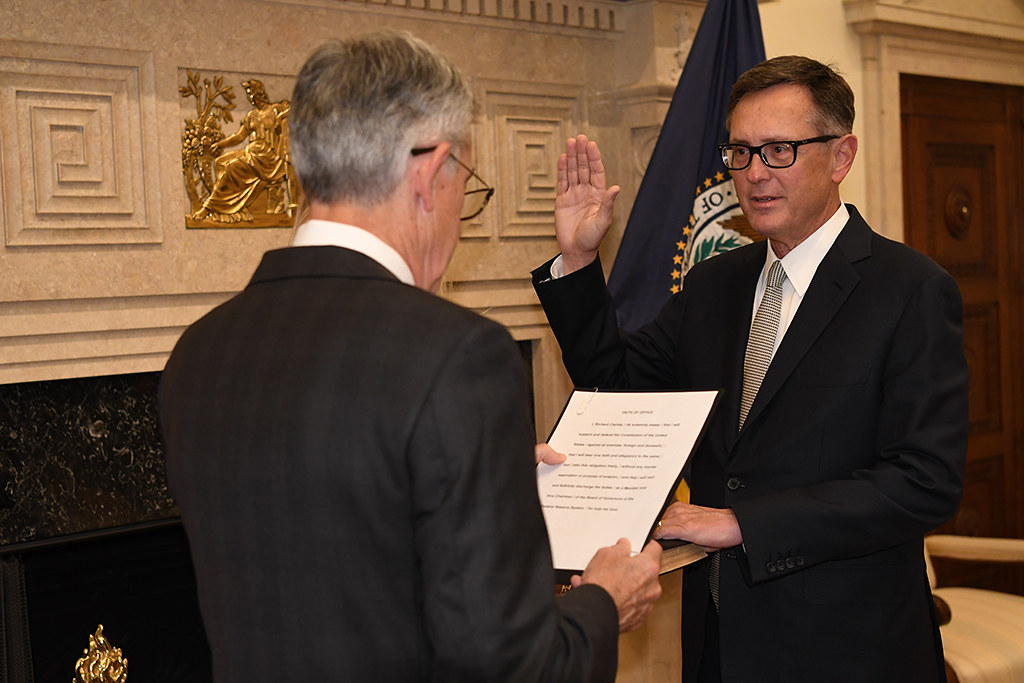
January 10, 2022
The Public Still Needs Answers About The Fed
Federal Reserve officials’ conduct has cast doubt on the institution’s credibility to provide these answers. It is, therefore, critical that members of the media and of Congress seek independent answers.
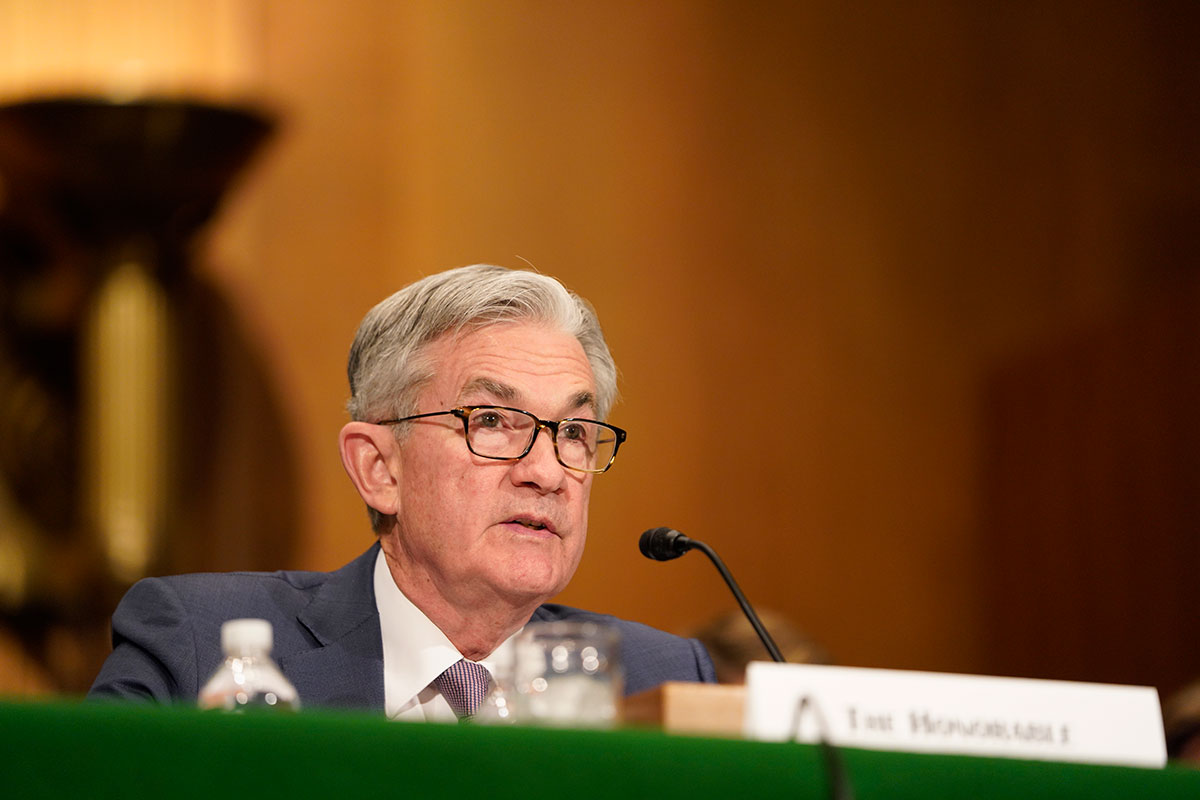
January 10, 2022
Letter Calls on Senators to Grill Powell on Fed Ethics Failures
In the fall of 2021, a series of trading scandals rocked the Federal Reserve and cast doubt on every aspect of its ethics program, from disclosure practices and vetting standards to enforcement mechanisms. The message to the public was clear: under chairman Jerome Powell, the Federal Reserve’s sole executive officer and the official to whom the institution’s staff reports, ethical conduct was not a priority. After initially brushing off the seriousness of these revelations, Powell seemingly sought to change that impression by instituting new ethics standards and launching an Inspector General’s investigation.
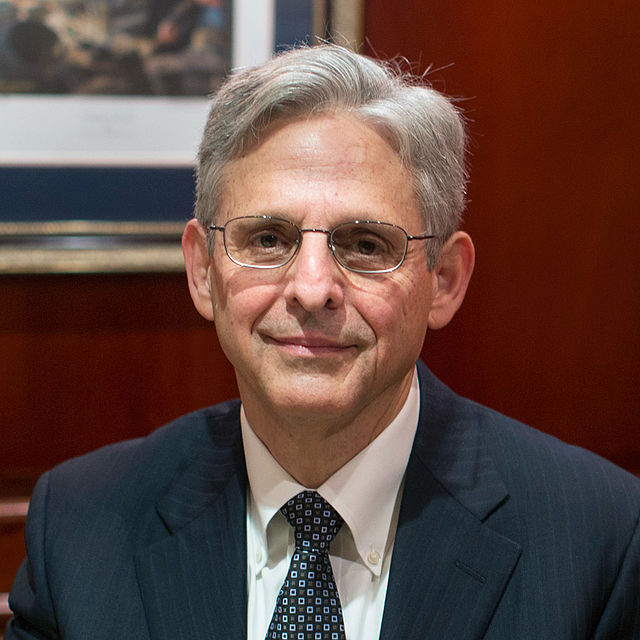
January 06, 2022 | The American Prospect
Merrick Garland Is Undermining The Biden Antitrust Strategy
In theory, nothing prevents Biden from hiring whomever Kanter personally trusts to help execute their shared agenda. So what’s causing the chaos?
January 05, 2022 | Revolving Door Project Newsletter
The Stones that Paved the Way to 1/6
Tomorrow marks one year from when rioters stormed the Capitol building in an attempt to overturn the 2020 presidential election. In the 364 days since that horrific event some things have certainly changed: the presidency has successfully changed hands, almost 200 insurrectionists have plead guilty, and a handful of Trump’s associates have been held in contempt of Congress for their refusal to testify before the select committee. And yet, in other respects, progress has been woefully incomplete. Key officials from the Trump administration remain in place, the federal government continues to defend many of Trump’s seemingly indefensible legal positions, and Trump and his inner circle have not faced consequences for inciting the insurrection.

January 04, 2022
Amidst a Record Supply Chain Crisis, What is the Federal Maritime Commission’s Capacity?
One tiny federal agency with 116 full-time employees and a $28.9 million dollar budget is in charge of regulating the global marine economy, which contributes $397 billion to the US GDP annually and accounts for 80 percent of goods shipped worldwide. That’s not just an apples and oranges discrepancy—that’s like an apple versus Apple. The budget for the military’s marching bands is fifteen times greater than the Federal Maritime Commission’s budget; the Marines alone have five times more musicians than the Commission has staff.

January 04, 2022 | The New Republic
One Unexpected Way for Biden to Help the Climate and Rural America at the Same Time
The president has the power to reform the wayward Tennessee Valley Authority. It’s a bigger deal than you think.

December 22, 2021
Blog Post Corporate CrackdownEducationEthics in GovernmentExecutive BranchIndependent AgenciesRevolving Door
The Administration’s Actions on Federal Student Aid Deserve Sustained Scrutiny
Biden made big promises to American college students and graduates in his presidential campaign, just to walk them back when he became president.

December 22, 2021 | Common Dreams
Free At-Home Tests Are a Start, But Biden Must Move Faster and Go Bigger to End Pandemic
The Covid-19 threat will not simply go away—especially when addressed with half measures. The administration must use its authority under the Defense Production Act much more wisely and aggressively.
December 22, 2021 | Revolving Door Project Newsletter
New Year’s Resolutions for Official Washington
The jury’s still out on whether Build Back Better is really, truly dead. Some think that there’s still a deal to be made after Senator Joe Manchin unceremoniously blew up negotiations over the weekend. Others argue that, if Manchin isn’t satisfied with a bill that has already been thoroughly hacked and chiseled to conform to his demands, he won’t accept anything. But whichever camp you fall in, it’s clear that the landmark legislation is unlikely to remain the only topic in town next year. (Indeed, as important as the needs requiring BBB are, the executive branch is always also critical). As our political leaders prepare for the post-Build Back Better world, we ask that they consider making the following resolutions for the New Year.
